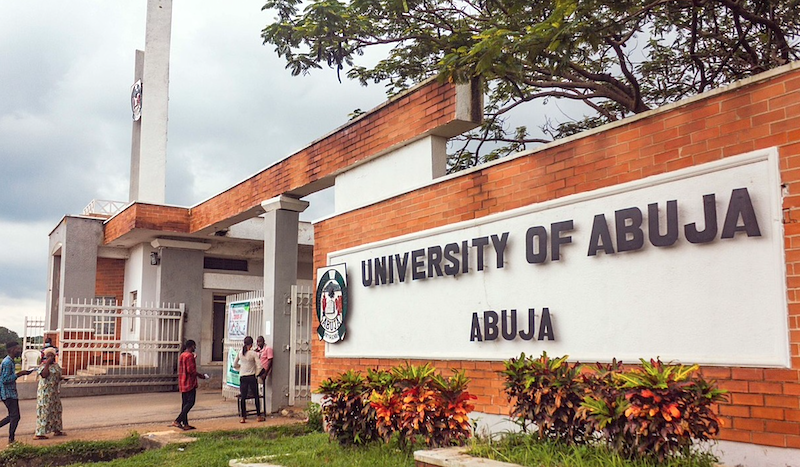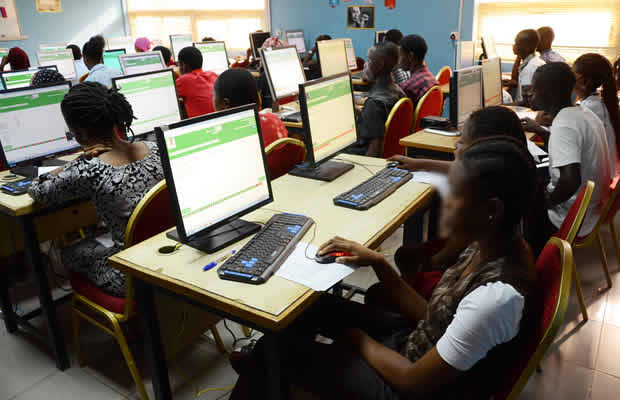The Joint Admission and Matriculation Board (JAMB) has revealed that Lagos State University (LASU), University of Lagos (UNILAG) and University of Ilorin (UNILORIN) are the most preferred Nigerian universities for admissions in 2025.
JAMB’s Registrar, Prof. Ishaq Oloyede, made this known on Tuesday in Abuja during the 2025 policy meeting on admissions into tertiary institutions.
The policy meeting was also to discuss the 5th edition (2023 and 2024) of National Tertiary Admissions Performance – Merit Award (NATAP-M).
He said the universities were the most sought-after institutions for the 2025/2026 academic session from the over two million candidates that sat for the 2025 Unified Tertiary Matriculation Examination (UTME).
Out of the top 10 most sought after universities, only the Lagos State University is owned by a state government. The nine others are owned by the Federal Government.
The most subscribed institutions include: LASU with 70,080 applicants, UNILAG with 58,645 applicants, UNILORIN with 56,758 applicants, and Federal University Oye-Ekiti (FUOYE) with 52,108 applicants.
Others are Nnamdi Azikiwe University (UNIZIK) with 51,487 applicants, University of Ibadan (UI) with 47,571 applicants, University of Nigeria, Nsukka (UNN) with 46,273 applicants and University of Benin (UNIBEN) with 45,868 applicants.
Also on the list are Obafemi Awolowo University (OAU) with 45,777 applicants and Federal University, Lafia with 42,962 applicants.
JAMB’s 150 cut-off mark presents important challenges – Educationist
Meanwhile, an educationist, Mr Sunday Fowowe, has said JAMB’s 150 cut off mark for 2025/2026 admission into universities announced by the board carries potential benefits.
The educationist, who is also the National President of the Association of Nursery and Primary Education Instructors in Nigeria, made this known in an interview with NAN on Tuesday.
Fowowe, however, said that the cutoff mark also presented important challenges that required thoughtful consideration.
JAMB on Tuesday fixed 150 as the minimum cut-off mark for admission into Nigerian universities for the 2025-2026 academic session.
The decision was reached during the 2025 Policy Meeting on Admissions, held at the Bola Ahmed Tinubu International Conference Centre in Abuja, with stakeholders from various tertiary institutions in attendance.
Fowowe said that the decision also marked a notable shift in Nigeria’s higher education admission landscape.
“On one hand, this lowered threshold can significantly increase access to tertiary education, particularly for students from underserved regions or socioeconomically disadvantaged backgrounds.
“Many students, who score below traditionally higher cut-off marks, may now have a chance to enter universities, polytechnics, or colleges of education, thereby, expanding the talent pool and promoting greater educational equity,” he said.
He said the policy might also align with broader national goals of increasing youth enrollment in higher education, addressing regional disparities, and building a more inclusive education system.
“In rural and under-resourced areas where access to quality secondary education is limited, this decision might act as a corrective measure, giving students a fairer opportunity to continue their studies,” he said.
The educationist, however, said that the lowering of the minimum cut-off score also raised valid concerns about academic quality and institutional readiness.
“The pressure on universities and other tertiary institutions to maintain rigorous academic standards will likely increase.
“Without proper checks, there is a risk that institutions can become overwhelmed, leading to overcrowded classrooms, strained resources, and a decline in the quality of education delivered.
“Additionally, critics argue that a lower benchmark could devalue meritocracy, where excellence and preparedness are rewarded.
“It may encourage complacency among prospective candidates, ensuring that the right balance is struck between access and academic integrity is, therefore, crucial,” he said.
Fowowe, however, said that with this recent benchmark, the responsibility now shifted more heavily to the individual institutions.
“While JAMB sets the minimum national cut-off mark, universities and colleges are still at liberty to establish their own internal criteria through processes like Post-UTME screenings.
“Others are interviews or aptitude tests; departmental quotas and standards, academic bridging or foundation programmes among others.
“These tools, if effectively implemented, can help filter and prepare students more adequately for the demands of higher education, regardless of their initial JAMB scores,” he said.
Fowowe added that the success of the policy would depend on how well it was implemented, monitored, and supported.
“If institutions are proactive in upholding strong academic frameworks and providing robust student support services, the lowered cut-off mark can serve as a catalyst for more inclusive and equitable education without sacrificing quality.
“However, without continuous oversight and investment in infrastructure, faculty, and academic services, there is a real risk that the policy can result in diluted academic standards and widened performance gaps.
“A balanced approach, guided by data, feedback, and strategic planning, will be essential to ensure that the gains in access translate into positive educational and societal outcomes,” he said.
JAMB awards N710m to 6 institutions
The Joint Admissions and Matriculation Board (JAMB) has awarded N710 million to six tertiary institutions during this year’s National Tertiary Admissions Performance Merit Award (NATAP-M).
Speaking on how the winners emerged, JAMB Registrar, Is-haq Oloyede, said the board judged the institutions by five criteria.
He said this in Abuja on Tuesday at the 2025 policy meeting on admissions into tertiary institutions and 5th edition (2023 and 2024) of National Tertiary Admissions Performance-Merit Award (NATAP-M).
Recall that every year since 2018, JAMB had awarded prizes to tertiary institutions for compliance with its admission processes.
For the 2025 tertiary institutions’s award, the Ahmadu Bello University (ABU), Zaria emerged the overall winner with 14 points and was awarded N500 million.
The University of Ilorin emerged the Runner Up with nine points and was awarded N75 million.
Nile University of Nigeria, a private university in Abuja, emerged the Second Runner-up with six points and N25 million.
The winners were presented with dummy cheques during the award ceremony.
Oloyede said the criteria for selection included the institution with the highest number of candidates seeking admission from it and one that admits candidates from every state of the federation and the Federal Capital Territory (FCT).
Other criteria, he said, said were the institutions that admitted not less than 1,500 candidates in total, and one with the fairest distribution of admitted candidates among its catchment states (all states in case of specialised military institutions).
Also institutions with the highest number of admissions of foreign candidates, the most improved in gender balance and the most compliant with guidelines for admissions through the Central Admission Processing System (CAPS) were other criteria used.
The NATAP-M awards also has sectoral awards for Polytechnic, Colleges of Education and Innovation Enterprise Institutions (IEI).
Kaduna Polytechnic, Kaduna emerged the best polytechnic with an aggregate of 10 points and the Federal College of Education, Zaria the best College of Education, with an aggregate of 18 points, both receiving N50 million each.
Meanwhile, the PEFTI Film Institute, Lagos emerged as the best IEI, with an aggregate of four points, clinching a N10 million prize.




